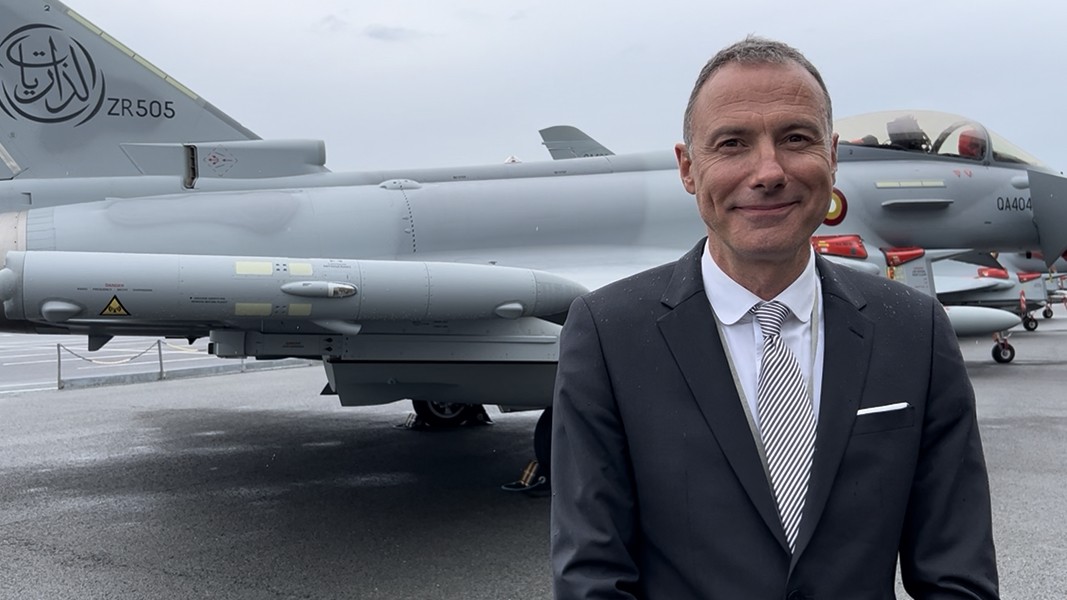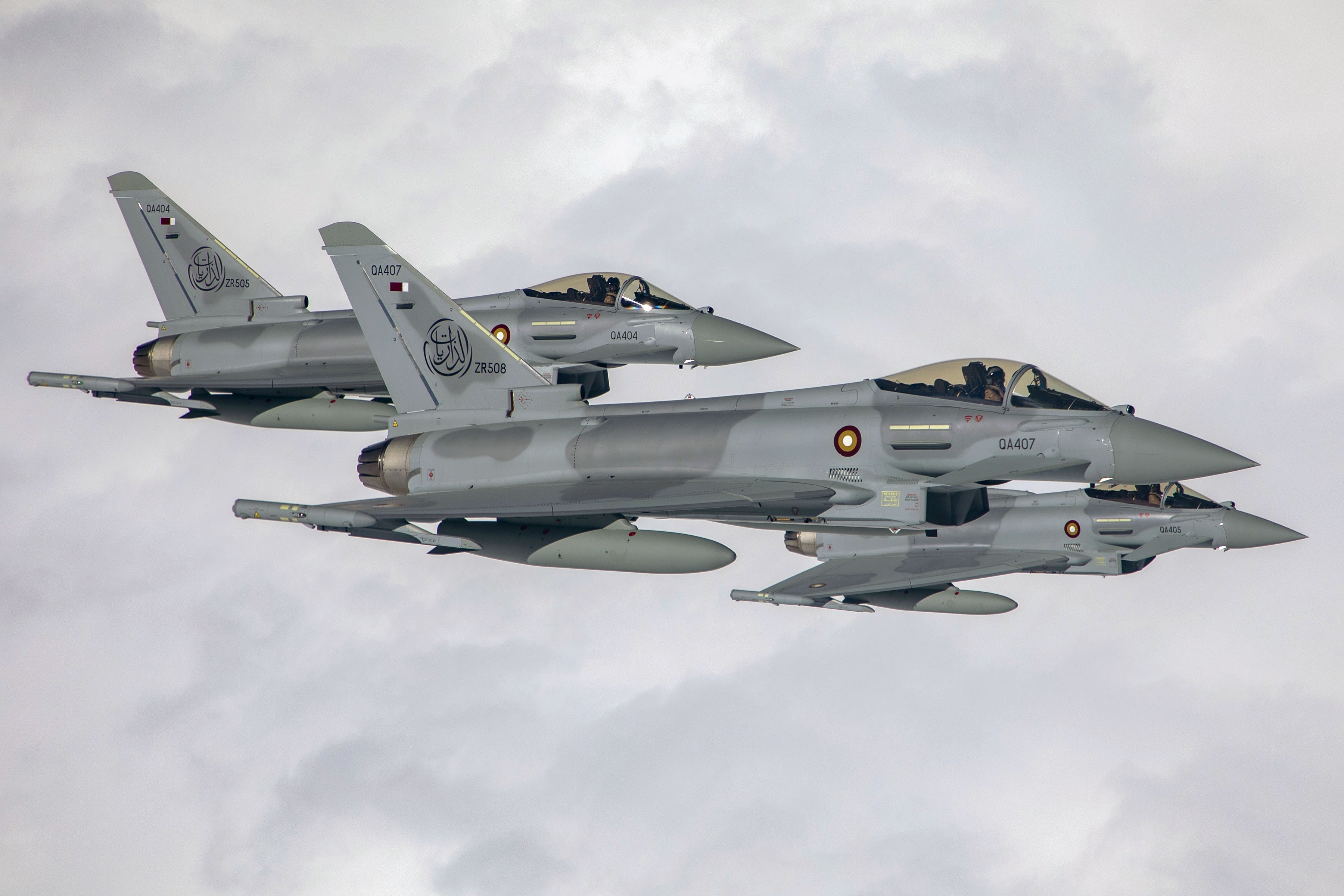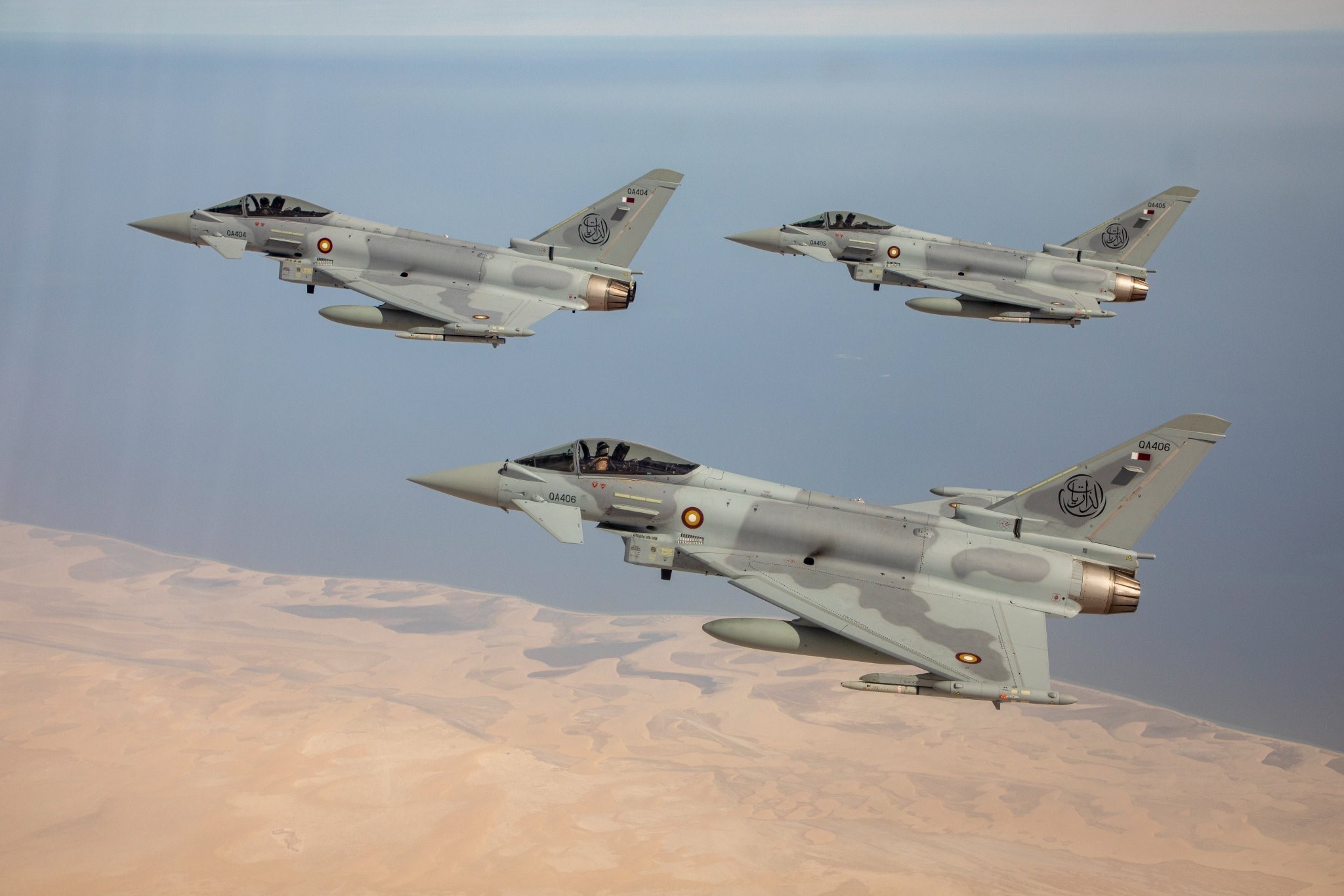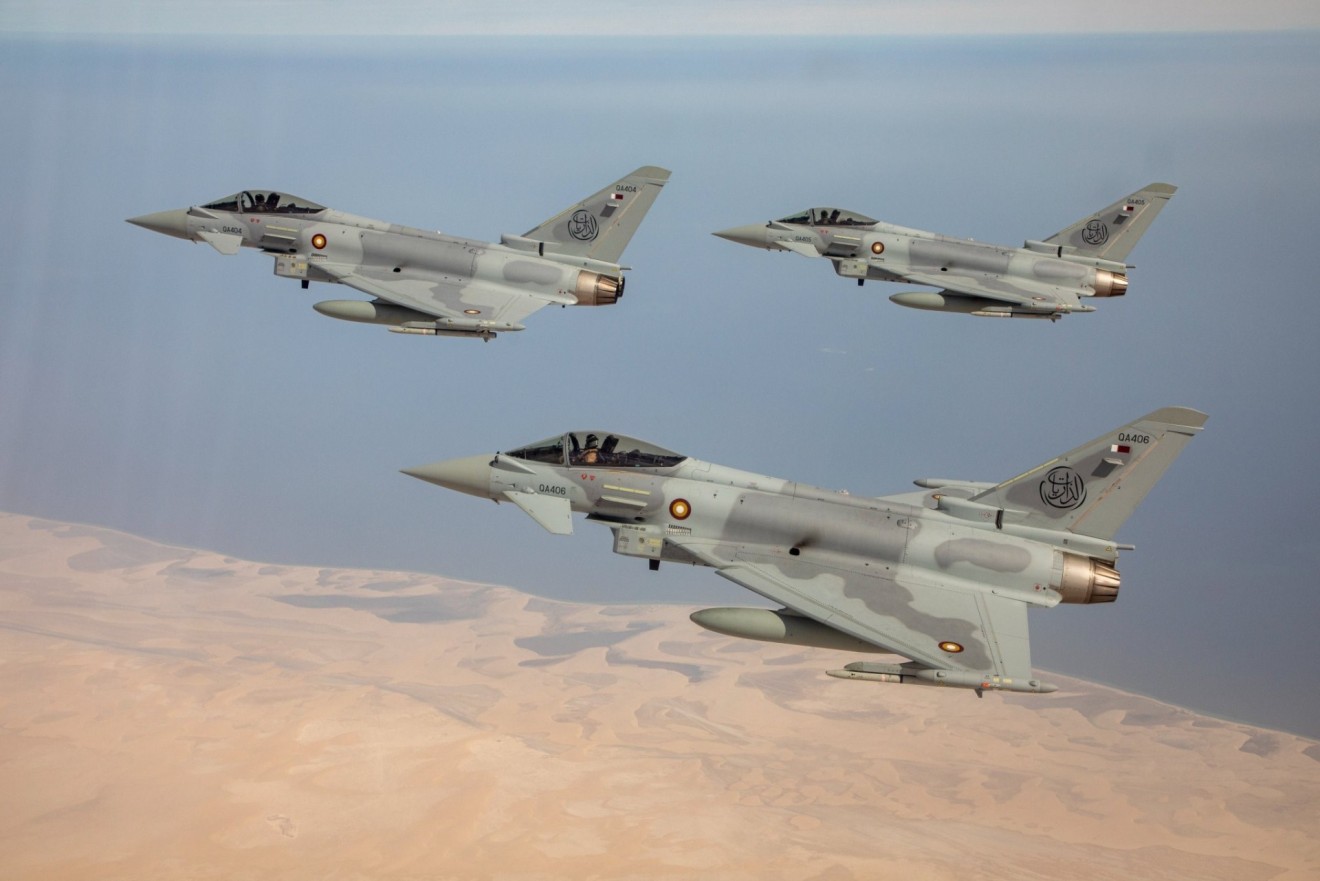
The date marks the start FIFA World Cup in Qatar, important to football fans across the globe, but it has also shaped delivery milestones for the Qatar Eurofighter team whose job it was to make sure the jets arrived tournament ready, in support of the overall programme led by BAE Systems. Here Marcus talks about their preparation and the journey his team have faced ahead of the tournament.
With deliveries of aircraft required to carry out vital air security at the World Cup what has the pressure been like for you?
The level of focus and attention has been incredibly intense — not just for me but for the whole team. It’s been a massive team effort. There have been lots of challenges and everyone has worked tirelessly to meet each deadline and get the outputs we needed. The attitude has been ‘we need to make this happen’ rather than accepting that we might not be able to deliver some things.
Working closely within Eurofighter and with the partner companies — BAE Systems, Leonardo, Airbus Germany and Airbus Spain, — we had a strong culture which meant we were all pulling in one direction. The Airbus Germany team are a great example of a partner going the extra mile. We were behind on a key aspect of the programme at one stage so they worked weekends, nights and long shifts to get the outputs we needed.
Hitting aircraft deliveries on plan is never easy. The original timeline was set four years ago, and it actually got pulled forward in order to meet the World Cup. But we made it — in fact, we actually initially delivered four planes rather than the two that were originally scheduled, with a total of eight planned ahead of the World Cup. There were challenges but the work we have put in is a testament to Eurofighter and our associated companies.

What skills do you need to take a leadership role on a project so time sensitive?
There are a number of things. The main one, for me, is setting the right tone. It is so important to have the right culture and create a strong working environment full of collaborative behaviours. If you set that sense of goal, achievement and purpose, everyone aims for the same target.
Clearly you need the right technical skills and experience, but a key part of that success is building the right relationships, collaborative relationships across the team. When there was an issue as we got close to the deadline, it wasn’t a case of banging the table and playing the blame game, it was one of coming together and helping to benefit everyone.
As a project manager, the fundamental skill required is ensuring everyone is on the right page, so you have to be a good, open communicator. Knowing when to intervene and when not to, but also supporting the team and escalating appropriately are as important as making sense of what is going on and having the awareness that comes with experience. The skills that you need are more innate than anything.
What were your first steps in the industry?
I was actually sponsored through the University of Manchester by BAE Systems, so I have had that tie to the company since the early nineties. My dad worked for them in the sixties, and I suppose that inspired me. After graduating and going through an engineering-focussed development programme, I decided I wanted to go into project management.
That decision, as well as numerous engineering placements has allowed me to take on a number of roles working on different projects like Tornado, UAVs and quite a few years on Nimrod MRA4 during the early years of my career in a project management position.
I moved onto Salam in 2011 after a period working on UAV development and became heavily involved in the Saudi programme, mainly on the support side during the entry into service of the Typhoon, working with the Saudi customer on behalf of BAE Systems.

What attracted you to your current role?
I spent eight years working on the Saudi support programme before leading the Quadriga bid (Germany’s deal to buy 38 new standard Typhoon to replace their Tranche 1 aircraft) in the UK for BAE Systems. Then when we won the contract, I led the delivery, which gave me a stronger link to the work of Eurofighter.
By then I had also had lots of exposure to the export world and had developed relationships with the customers, as well as a good knowledge of the Middle East region. I’d spend a great deal of my career in Oman and Qatar during my time developing UAVs and obviously in Saudi during the Salam support.
When the opportunity came up, it felt a natural step at the right time.
Who inspires your approach to leadership?
In my last 10-15 years at BAE Systems I had a lot of mentors: leaders like Martin Taylor and, Ian Muldowney stand out. They have been two key people, who have really helped shape both me and my career.
In terms of engineering, I would say Elon Musk is somebody who impresses me. As an entrepreneur and an innovator, he is very inspiring. His engineering leadership is inspirational, to do what he has done at Tesla and more recently the work he has done with Space X is phenomenal. He has set new heights for what can be achieved, and he’s kept growing by innovating.
Is there anything that looks like a typical day in your life?
Probably not really! I spend a lot of my time on one-to-one conversations with our key stakeholders in the industry, in Eurofighter, the partner companies and in the customer organisations. My priority is maintaining and managing our key stakeholders.
I also talk to the team every day. I believe keeping that communication line steady is vital. A lot of the time my key role is supporting the team and providing some direction when required and ensuring we have the right environment to achieve our goals.
